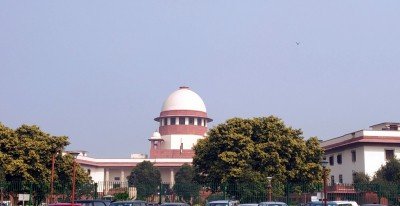New Delhi, March 16 (IANS) The BJP’s Madhya Pradesh unit has cited the 1994 nine-judge Constitution bench judgement in S.R. Bommai vs Union Of India, which held that a Chief Minister’s refusal to test his strength on the floor of the Legislative Assembly can well be interpreted as prima facie proof of his no longer enjoying the confidence of the legislature. The case has become the most cited whenever hung Assemblies found its way on the political landscape and parties scrambled to form a government.
Madhya Pradesh is witnessing a political turmoil after 22 Congress MLAs resigned, leaving the Kamal Nath government tottering.
On Monday, the Madhya Pradesh BJP unit filed a plea in the Supreme Court seeking an order to the Assembly Speaker to hold a floor test within 12 hours, as per the direction issued by Governor Lalji Tandon.
Citing the Bommai judgement in its support, the plea contended this had held that if the support to a government is withdrawn by some legislators and the government appears to have lost the confidence of the house, it is the duty of the Governor to direct the government to prove the majority by floor test.
“In this connection, it is necessary to stress that in all cases where the support to the Ministry is claimed to have been withdrawn by some legislators, the proper course for testing the strength of the Ministry is holding the test on the floor of the House,” the Bommai judgement had said.
The MP BJP has cited excerpts from this judgment to establish the validity of the floor test in the on-going political upheaval in the state. “The assessment of the strength of the Ministry is not a matter of private opinion of any individual, be the Governor or the President. It is capable of being demonstrated and ascertained publicly in the House,” said the judgement.
The petition emphasised that any private assessment, on the strength of the legislators in the government, is an anathema to the democratic principle, apart from being open to serious objections of personal mala fides. “It is possible that on some rare occasions, the floor test may be impossible, although it is difficult to envisage such a situation. Even assuming that there arises one, it should be obligatory on the Governor in such circumstances, to state in writing, the reasons for not holding the floor-test,” the petition cited from the apex court judgement.
The nine-judge bench emphasized that wherever a doubt arises whether the Council of Ministers has lost the confidence of the House, the only way of testing it is on the floor of the House except in an extraordinary situation “where because of all-pervasive violence, the Governor comes to the conclusion – and records the same in his report – that for the reasons mentioned by him, a free vote is not possible in the House.”
S.R. Bommai was the Chief Minister of the Janata Dal government in Karnataka between August 13, 1988 and April 21, 1989. On April 21, 1989, his government was dismissed under Article 356 of the Constitution and President’s Rule was imposed. This was seen as a common mode to keep Opposition parties at bay. The ground of dismissal was that the government had lost its majority following large-scale defections orchestrated by several party leaders. Then Governor P. Venkatasubbaiah refused to give Bommai an opportunity to test his majority in the Assembly, despite the Chief Minister presenting him with a copy of the resolution passed by the Janata Dal Legislature Party.
Bommai did not get any relief from the High Court and then he moved the Supreme Court. The apex court through its judgement put an end to the arbitrary dismissal of state governments under Article 356 by spelling out restrictions.
–IANS
ss/vd
